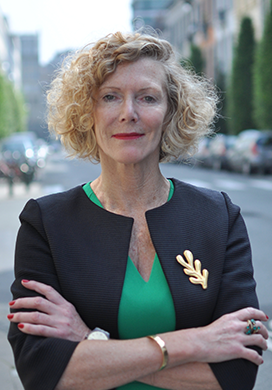Brussels journalists have long played musical chairs, jumping from one media outlet to another, often in a bid to remain in the heart of Europe or to seek an employer with deeper pockets or just to have a change of scene. But even by Brussels bubble standards, tech journalists have recently been swapping roles at a dizzying rate.
(The Brussels media scene has been changing so fast that a few moves were missing in my first version)
Brussels journalists have long played musical chairs, jumping from one media outlet to another, often in a bid to remain in the heart of Europe or to seek an employer with deeper pockets or just to have a change of scene. But even by Brussels bubble standards, tech journalists have recently been swapping roles at a dizzying rate.
Julia Fioretti, who has covered EU tech policy for Reuters for the past four years, last week became the latest journalist to announce a move. Putting paid to a rumour that she was taking on the EU energy beat, she announced her imminent departure for Hong Kong to cover Asian capital markets. Colleague Foo Yun Chee will add tech to the demanding competition role she has held since January 2009.
Over at the Wall Street Journal, EU competition and tech correspondent Natalia Drozdiak has joined Bloomberg’s tech team out of Brussels, drawing a welcome from future colleague Brad Stone, author of The Everything Store.
Excited to announce that @nat_droz will soon be joining the Bloomberg @technology team in Brussels to cover stories of entrepreneurship and innovation in Europe, as well as the regulatory push-back against Big Tech. Welcome Nat!
— Brad Stone (@BradStone) May 23, 2018
Mind you, Bloomberg lost London-based tech correspondent Adam Satariano earlier in the year to the New York Times. He fills a vacancy left by Mark Scott who joined POLITICO as senior European tech correspondent last year. Also boosting the POLITICO tech team this year were Nicholas Vinocur, moving to Brussels from Paris as editor, and Cat Contiguglia, formerly covering financial services In London. Berlin-based Janosch Delcker took on a new title as AI correspondent.
POLITICO itself has lost tech reporter Cynthia Kroet to MLex, the authoritative risk analysis service closely followed by lawyers and the European institutions. Competition reporter Nicholas Hirst, who worked closely with the tech team, has also left POLITICO for MLex.
In response, POLITICO has set up a dedicated competition service, Fair Play, headed by former Financial Times correspondent Christian Oliver and staffed by new recruits Simon Van Dorpe, formerly with specialist outlet PaRR, and Thibault Larger, who previously worked as an economist in the field of competition policy.
In turn, MLex lost two heavy-hitters this year. Telecoms and tech supremo Magnus Franklin moved to the dark side in the form of Teneo Cabinet DN. Stepping into his shoes is Vesela Gladicheva, who is based in London. Global head of mergers Dafydd Nelson succumbed to the lucrative lure of US hedge fund TIG.
Moving in the opposite direction, competition lawyer Anne MacGregor left Dechert LLP to set up the Brussels bureau of US antitrust service The Capitol Forum. No stranger to journalism, she set up the merger control analysis reporting unit within MLex.
In other media moves, the Economist’s Charlemagne correspondent, Tom Nuttall, will soon swap places with Berlin correspondent Jeremy Cliffe. And Anne Rovan will soon succeed Jean-Jacques Mèvel as Le Figaro’s EU correspondent. She currently heads the French daily’s political coverage out of Paris.
From what we’re hearing, more changes are afoot.
Meanwhile, join our #BrusselsCalling media panel on June 7 to hear how national correspondents make sense of Brussels for their readers.
